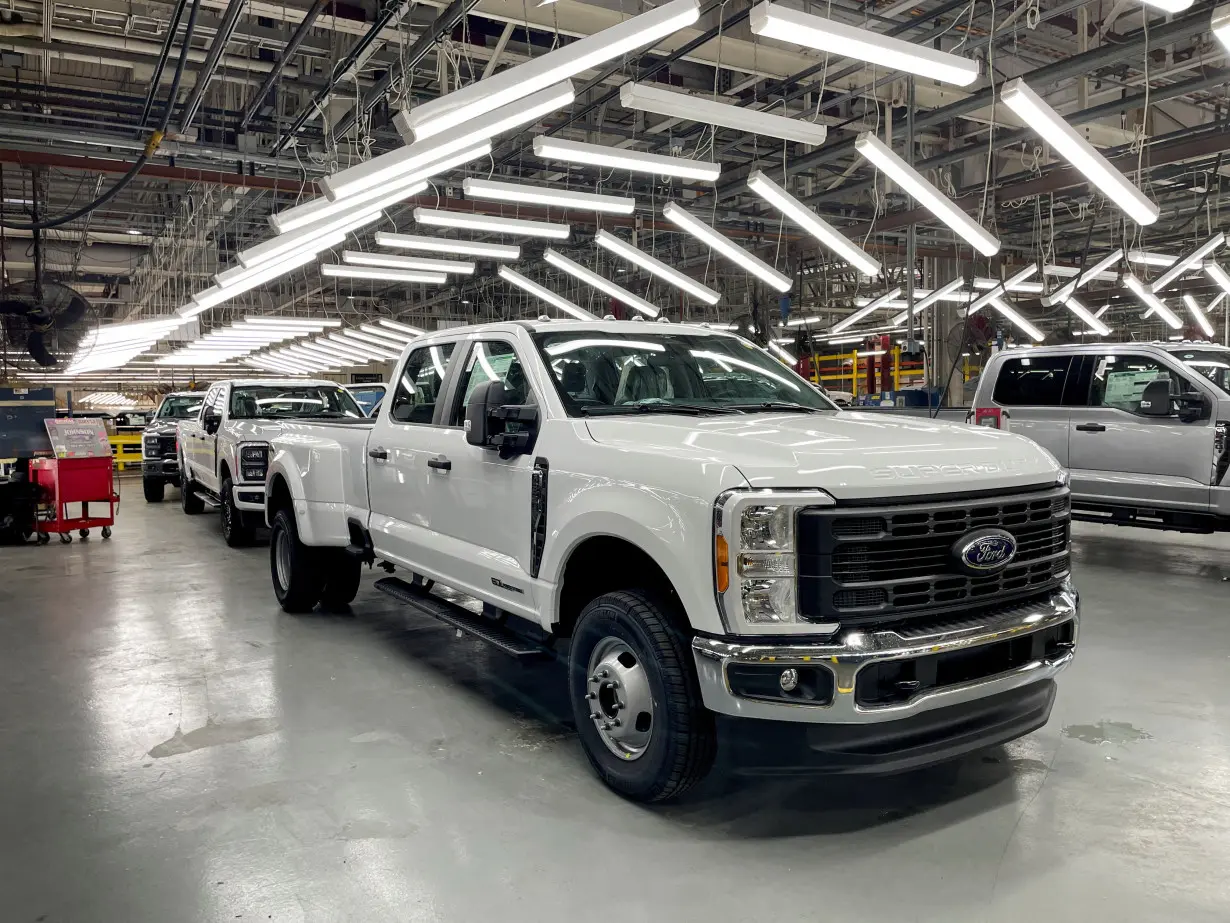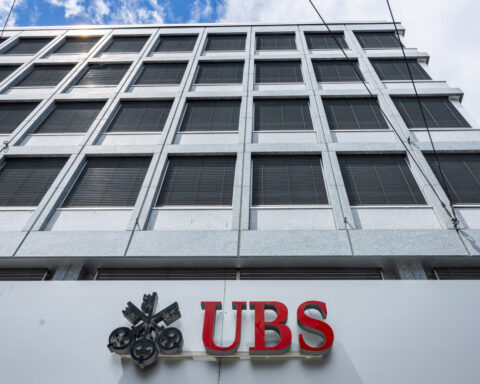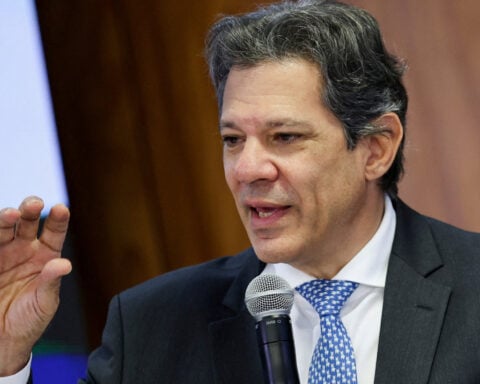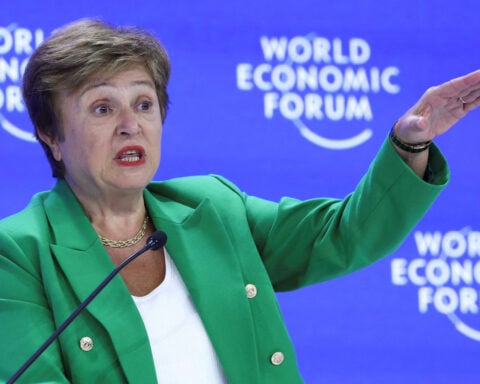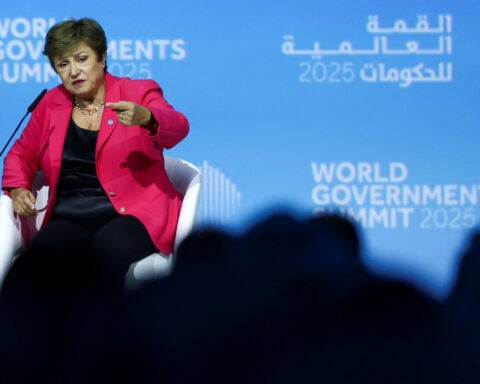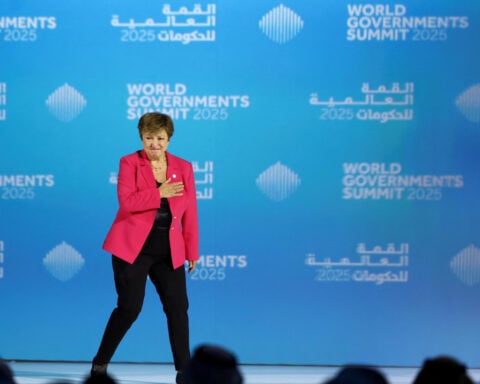By Lucia Mutikani
WASHINGTON (Reuters) - U.S. manufacturing remained subdued in November, with factory employment declining further as hiring slowed and layoffs increased, more evidence that the economy was losing momentum after robust growth last quarter.
The survey from the Institute for Supply Management (ISM) on Friday followed on the heels of data on Thursday showing moderate growth in consumer spending and subsiding inflation in October. Economic activity is cooling as higher interest rates crimp demand. Most economists, however, do not expect a recession next year and believe the Federal Reserve will be able to engineer the hoped-for "soft landing."
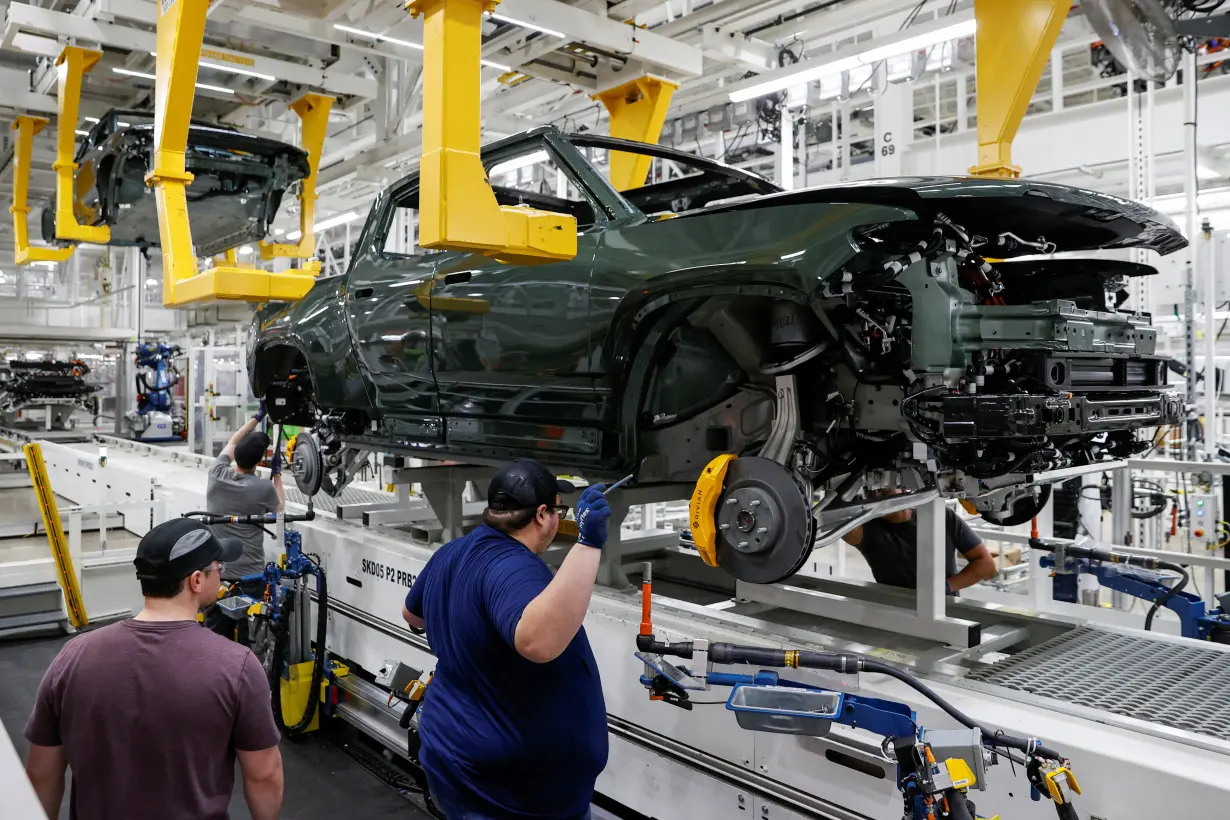
Speaking during an event at Spelman College in Atlanta on Friday, Federal Reserve Chair Jerome Powell said "we are getting what we wanted to get" out of the economy.
The ISM said that its manufacturing PMI was unchanged at 46.7 last month. It was the 13th consecutive month that the PMI stayed below 50, which indicates contraction in manufacturing. That is the longest such stretch since the period from August 2000 to January 2002.
Some economists believed that the United Auto Workers strike, which ended in late October, continued to have an impact on the PMI. A rebound anytime soon is unlikely as manufacturers in the ISM survey mostly described inventories as bloated.
"This implies the goods sector overestimated demand and production could slow further in the next few months, though that too could reflect lingering strike effects if auto parts piled up when production was idled," said Will Compernolle, macro strategist at FHN Financial in New York.
Economists polled by Reuters had forecast the index creeping up to 47.6. According to the ISM, a PMI reading below 48.7 over a period of time generally indicates a contraction of the overall economy. The economy, however, continues to expand, growing at a 5.2% annualized rate in the third quarter.
Three industries - food, beverage and tobacco as well as transportation equipment and nonmetallic mineral products - reported growth last month. The 14 industries reporting contraction included paper products, electrical equipment, appliances and components, computer and electronic products, machinery and miscellaneous manufacturing.
Comments from manufacturers were mostly downbeat and cited the need to reduce inventory levels. Makers of computer and electronic products said the "economy appears to be slowing dramatically." Miscellaneous manufacturing firms said "customer orders have pushed into the first quarter of 2024, resulting in inflated end-of-year inventory."
Producers of food, beverage and tobacco reported that "our executives have requested that we bring down inventory levels considerably, and it has started causing customer shortages." Makers of fabricated metal products said "automotive sales (are) still impacted by (the) UAW strike," adding they were "still waiting for orders to come in."
The persistent decline in the PMI likely overstates the weakness in manufacturing, which accounts for 11.1% of the economy. Orders for long-lasting manufactured goods are up strongly on a year-on-year basis and factory production has held up, excluding the effects of the UAW industrial action.
"We are not inclined to infer much deterioration from the ISM composite unless it clearly drifts outside of this year's range, from a low of 46.3 in March to a short-lived high of 49.0 in September," said Jonathan Millar, a senior economist at Barclays in New York.
Stocks on Wall Street were trading higher. The dollar fell against a basket of currencies. U.S. Treasury prices rose.
STRONG CONSTRUCTION SPENDING
A separate report from the Commerce Department's Census Bureau showed construction spending rising solidly in October, fueled by single-family homebuilding.
"Despite the emerging signs of a slowdown, investors should know there are opportunities in the markets," said Jeffrey Roach, chief economist at LPL Financial in Charlotte, North Carolina. "The current state of the housing market could bode well for homebuilders."
The ISM survey's forward-looking new orders sub-index rose to a still-weak 48.3 last month from 45.5 in October. A measure of factory inventories remained depressed last month, but the gauge of stocks at customers increased to what the ISM described as the upper end of "just right."
"Leading indicators in the report, particularly new orders and customer inventory levels, do not point to an upturn in activity in the immediate future," said Conrad DeQuadros, senior economic advisor at Brean Capital in New York. "However, neither does the report point to the pervasive weakness in manufacturing that is typically associated with recession."
Prices for factory inputs were subdued, though they were no longer falling at the pace seen in prior months. The survey's measure of prices paid by manufacturers increased to 49.9, the highest reading in seven months, from 45.1 in October.
Nevertheless, price pressures in the economy are subsiding. Annual inflation increased in October at its slowest pace in more than 2-1/2 years, the government reported on Thursday.
Cooling inflation is fanning optimism that the Fed is probably done raising rates this cycle, with financial markets even anticipating a rate cut in mid-2024.
Factory employment declined for a second straight month, with the ISM noting an increase in "attrition, freezes and layoffs to reduce head counts."
The survey's gauge of factory employment dropped to 45.8 last month from 46.8 in October. This measure has not been a reliable predictor of manufacturing payrolls in the government's closely watched employment report.
Manufacturing payrolls are expected to have rebounded in November as about 33,000 striking UAW members returned to work. Factory payrolls dropped by 35,000 jobs in October.
Overall nonfarm payrolls are expected to have increased by 170,000 jobs last month after rising 150,000 in October, according to a preliminary Reuters survey of economists.
The government is scheduled to publish November's employment report next Friday.
(Reporting by Lucia Mutikani; Editing by Chizu Nomiyama and Andrea Ricci)

 Trump has begun another trade war. Here's a timeline of how we got here
Trump has begun another trade war. Here's a timeline of how we got here
 Canada's leader laments lost friendship with US in town that sheltered stranded Americans after 9/11
Canada's leader laments lost friendship with US in town that sheltered stranded Americans after 9/11
 Chinese EV giant BYD's fourth-quarter profit leaps 73%
Chinese EV giant BYD's fourth-quarter profit leaps 73%
 You're an American in another land? Prepare to talk about the why and how of Trump 2.0
You're an American in another land? Prepare to talk about the why and how of Trump 2.0
 Chalk talk: Star power, top teams and No. 5 seeds headline the women's March Madness Sweet 16
Chalk talk: Star power, top teams and No. 5 seeds headline the women's March Madness Sweet 16
 Purdue returns to Sweet 16 with 76-62 win over McNeese in March Madness
Purdue returns to Sweet 16 with 76-62 win over McNeese in March Madness
